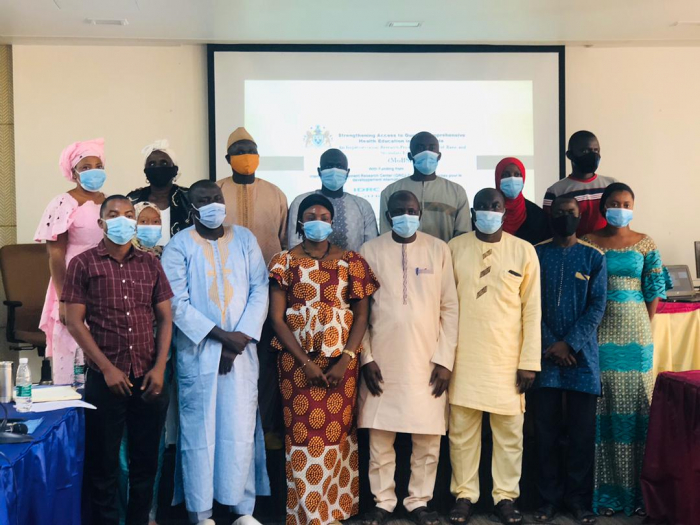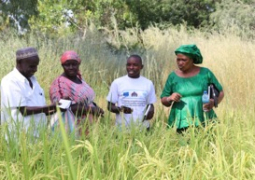
The dissemination meeting with the National Assembly select Committee on Health, Women, Children, Refugees, Disaster, and Humanitarian Relief was centered on Comprehensive Health Education under the project - Strengthening Access to Quality Comprehensive Health Education in The Gambia.
It is an implementation research project done by Ministry of Basic and Secondary Education funded by International Development Research Center (IDRC), Canada.
In her presentation, Mrs Phebian Ina Grant-Sagnia, principal investigator of the project for Strengthening Access to Quality Comprehensive Health Education for in-and-out of School Adolescents in Region 1, said that CHE among adolescents and youth would provide students with life skills with which they can handle crisis situations.
She said CHE encompasses all aspects of a young person’s life, which, she added, included skills, attitudes, and practices of children and youth that are conducive to their good health and promote wellness, health maintenance, and disease prevention among other things.
Mrs Grant-Sagnia, who is also a Principal Health Researcher at the Ministry of Health stated that adolescents have various needs with respect to sexual development and have a need to receive help in understanding changes of their body and behavior and how to cope with these not only at the time but also how to integrate them into a mature personality in the future.
She recalled that in The Gambia, CHE programs in schools started way back in the early 1990s and that the country had been using the school curriculum to deal with high population growth rate, adolescent pregnancy and illegal abortion, drug abuse among others.
“It was through the introduction of Population and Family Life Education (Pop/FLE) into the school system with the support of UNFPA. This critical youth sexual and reproductive health led in 2017 to the re-orientation of the POP/FLE with the adoption of new international standards promoting a comprehensive sexuality education.”
Responding to questions from members of the Select Committee on Health, Women, Children, Refugees, Disaster, and Humanitarian Relief, Dr Mat Lowe, a member of the research team explained that misinformation about sex and lack of youth friendly sexual and reproductive health services in the country poses challenges to the sexual and reproductive health of young girls.
The project, he said, seeks to provide policymakers at the Ministry of Basic and Secondary Education with detailed information on the type and short-term effects of age appropriate and culturally relevant package of intervention that can be scaled up to strengthen access to quality comprehensive sexuality education to meet adolescents and youth sexual and reproductive health rights and needs in Gambia.
Chairman of the National Assembly Select Committee on Health, Women, Children, Refugees, Disaster, and Humanitarian Relief, Ousman Sillah and members of the committee commended MoBSE Curriculum Research, Evolution and Development Directorate (CREDD) for a job well done.
Sillah expressed his committee’s support to the project, as it is a cause they welcomed at the National Assembly.
Momodou Jeng Director of Curriculum Ministry of Basic and Secondary Education gave a comprehensive summary and importance of the project.





